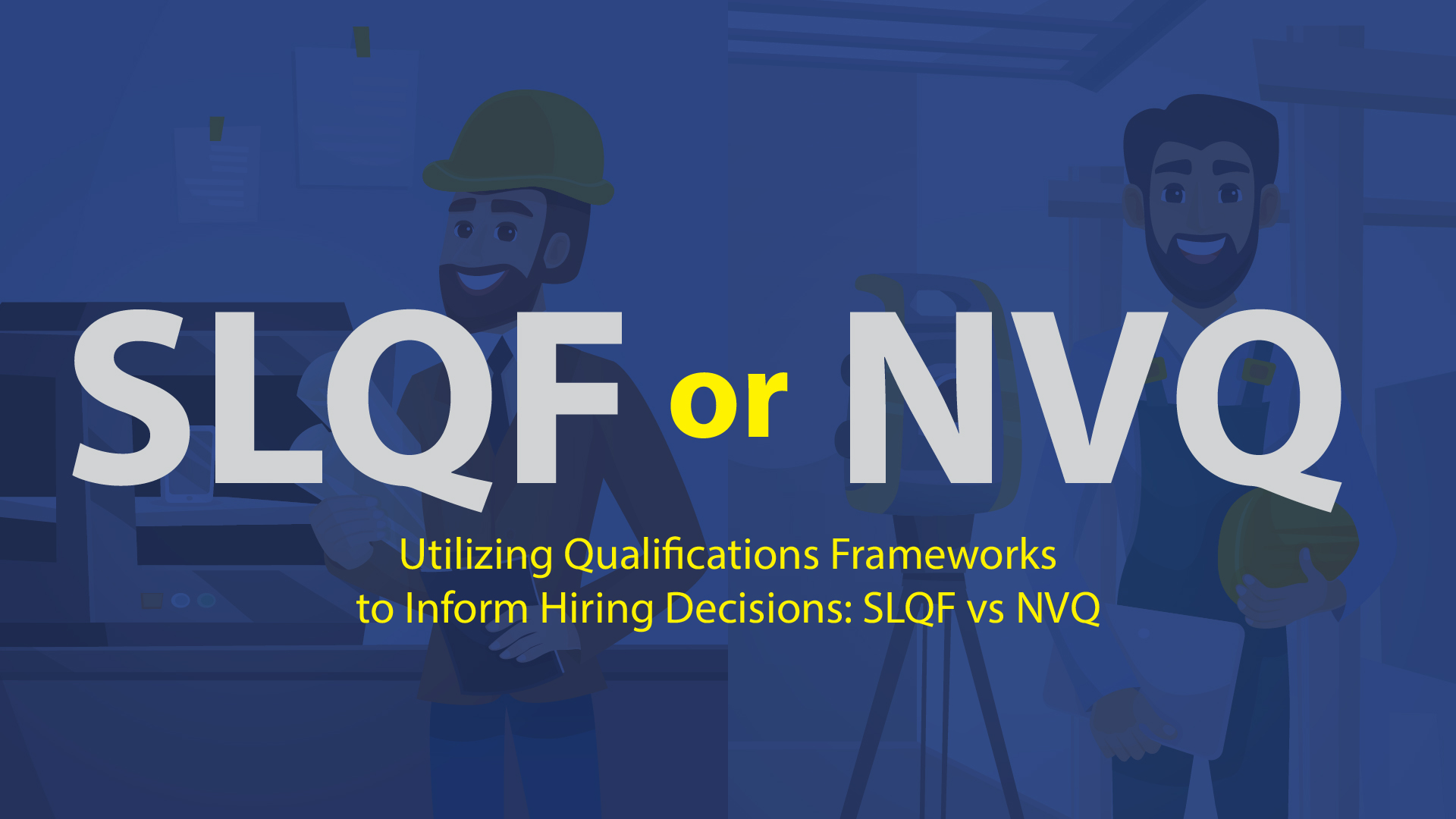SLQF vs NVQ: Utilising Qualifications Frameworks to Inform Guaranteed Hiring Decisions in 21st Century

The Sri Lanka Qualifications Framework (SLQF) and the National Vocational Qualification (NVQ) are two important qualifications frameworks in Sri Lanka. They can be used by recruiters to identify qualified candidates for open positions.
The SLQF
The SLQF is a national credentials framework that recognizes a wide range of academic, vocational, and professional degrees. It is divided into 12 levels, with Level 1 being the lowest and Level 12 being the highest.
The SLQF is based on a credit-based system, which means that students can earn credits toward higher-level qualifications over time. This can be beneficial for applicants who are still in school or who are looking to upgrade their qualifications.
The SLQF is aligned with the International Qualifications Framework (EQF), which is a global standard for qualifications. This means that SLQF qualifications are recognised by employers and educational institutions around the world.
The NVQ
The NVQ is a competency-based system that focuses on the practical skills and knowledge necessary for certain employment positions. It is divided into seven levels, with Level 1 being the lowest and Level 7 being the highest.
This framework is based on a set of criteria that define the skills and knowledge required for each level. Applicants can demonstrate their skills and knowledge through a variety of assessments, such as practical demonstrations, written tests, and interviews.
The NVQ is recognised by employers and educational institutions around the world. This means that National Vocational Qualifications can help applicants get jobs and advance their careers.
How the SLQF and NVQ can be used by recruiters to make hiring decisions;
When making hiring decisions, it is important to consider both academic qualifications and practical skills and expertise. While academic credentials give a solid foundation of information, practical skills and expertise are frequently just as crucial in specific work situations.
By using both frameworks, recruiters can ensure they identify applicants with the correct blend of academic degrees and practical skills and knowledge. For example, a recruiter might be looking for an applicant with a bachelor’s degree in engineering and experience in using CAD software. They could look for applicants who have an Sri Lanka Qualification Framework Level 5 qualification in engineering and an National Vocational Qualification Level 2 qualification in CAD software.
Some specific ways that the SLQF and NVQ can be used by recruiters to make hiring decisions;
Identifying qualified candidates: The SLQF and NVQ can be used to identify qualified candidates for open positions. For example, a recruiter could use the SLQF to find candidates with a bachelor’s degree in engineering, and then use the NVQ to find candidates with experience in using CAD software.
Comparing candidates: The SLQF and NVQ can be used to compare candidates who have different qualifications. For example, a recruiter could compare two candidates who are both applying for a position as a software engineer. One candidate has a bachelor’s degree in computer science, while the other candidate has an NVQ Level 3 qualification in software engineering. The recruiter could use the SLQF and NVQ to compare the candidates’ qualifications and make a decision about who is the best fit for the position.
Making informed hiring decisions: The SLQF and NVQ can help recruiters make more informed hiring decisions. By understanding the skills and knowledge required for a particular position, recruiters can use the SLQF and NVQ to identify the best candidates for the job.
The latest trends in recruitment and how the SLQF and NVQ are being used to address these trends
The latest trends in recruitment include the increasing use of remote work, the growing importance of soft skills, and the need for more skilled workers. The SLQF and NVQ can be used to address these trends in a number of ways.
For example, the SLQF can be used to assess the skills and knowledge of remote workers. The NVQ can be used to identify candidates with soft skills, such as communication, teamwork, and problem-solving skills. And both the SLQF and NVQ can be used to identify candidates with the skills and knowledge needed for in-demand occupations.
Conclusion
The SLQF and NVQ are two valuable resources for recruiters in Sri Lanka. By understanding these frameworks, recruiters can make more informed hiring decisions and find the best candidates for their open positions.
———————————————————————————-
Read our article about new implementation of the Psychemetric Test aka the “Career Key” here.





